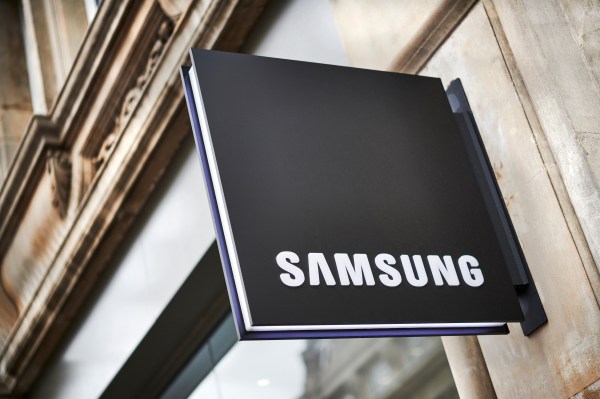Technology

The latest Samsung Electronics executive to go to prison for one of a variety of crimes is Lee Sang-hoon, chairman of the companyboard. A recent investigation unearthed conclusive evidence that Lee conspired with others at Samsung to crush unions and unionizing efforts there, in violation of South Korealabor laws.
The investigation in question began back in 2013 with the leak of company documents describing methods for combating employee unionization efforts. It was the beginning of a years-long set of interconnected cases that would eventually lead to indictments and jail time for dozens of executives there.
The case against Lee Sang-hoon was eventually dropped, but reopened last year when additional evidence was obtained in a raid on the company for a separate investigation. The incriminating documents led to further indictments that year and eventually Leesentencing today (which may still be appealed). The Wall Street Journal first reported the news.
Samsung Electronics President Young Sohn was onstage at TechCrunch Disrupt Berlin just last week, ahead of Leesentencing but after that of several other executives. Managing editor Matt Burns asked Sohn what happened. He first said those sentenced weren&t part of Samsung Electronics but another related group, then that he doesn&t get involved in the complex legal issues because that&their personal affair.&
He also said that they are &accused, they&re not proven guilty,& which is true in a way as long as the trial is ongoing (should they choose to appeal), but certainly they have been convicted and sentenced.
But Sohn admitted that &itreally important for any corporation, any size, whether itsmall or large, that you need to have a clear value system and clear ethics, and continue to train your management to make sure that there is a consistency in terms of how they do things.&
Unfortunately that value system over the last few years seems to have been quite explicitly and consistently against the formation of unions, to the point where it ran afoul of Korean law.
Sohn joined the company eight months ago, well after these troubles started, so itfair to see him as coming in to right the ship after a tumultuous few years both legally and business-wise. The convictions may signal that the investigations and scandals are coming to an end, but they are convictions nonetheless, and Samsungreputation has suffered immensely from the scale of the crimes its most powerful employees have committed.
- Details
- Category: Technology
Read more: Union-busting chairman of Samsung Electronics gets 18 months for labor law violations
Write comment (93 Comments)The Daily Crunch is TechCrunchroundup of our biggest and most important stories. If you&d like to get this delivered to your inbox every day at around 9am Pacific, you can subscribe here.
1. Amazonthird-party merchants are now barred from using FedEx Ground for Prime shipments
Amazon recently told third-party vendors that they are barred from using FedExground delivery services for Prime shipments. The Wall Street Journal reports that Amazon told merchants that the ban will last &until the delivery performance of these ship methods improves.&
The e-commerce platform will still allow FedEx Ground for non-Prime shipments and FedEx Express, a faster but pricier option, for Prime.
2. New media investment firm Attention Capital acquires Girlboss
Attention Capital is a new outfit that buys, builds and scales media brands. Girlboss, meanwhile, is the female-focused multi-media business founded by NastygalSophia Amoruso, who will join the firm as a founder partner.
3. Google has fired another worker-activist
Kathryn Spiers, who worked on the platform security team, was generally tasked with writing code for browser notifications to automatically notify employees about guidelines and company policies. According to Spiers, Google fired her because she created a browser notification to educate her colleagues about their labor rights.
4. Automated web app testing startup ProdPerfect raises $13M Series A led by Anthos Capital
ProdPerfect automates end-to-end testing for web developers. According to CEO Dan Widing, the product &followed some of the lessons of the product analytics industry to build a tool that lets us quantitatively understand how our customerlive users traverse the customerweb application.&
5. 1-800 Contacts buys the at-home eye exam provider 6over6 Vision
Based in Israel, 6over6 Vision previously raised $15 million to commercialize its in-home eye exams based on a combination of machine learning and sensors. The basic eye exams can be performed with nothing more than a smartphone or computer and camera.
6. Instagram hides false content behind warnings, except for politicians
Instagram is expanding its limited fact-checking test in the U.S. and will now work with 45 third-party organizations to assess the truthfulness of photo and video content on its app. One group thatexempt from the fact checking, though, is politicians.
7. Brand power vs. product power
Carboniteco-founder offers an insider look at how the PC backup company built its brand. (Extra Crunch membership required.)

- Details
- Category: Technology
Read more: Daily Crunch: Amazon takes action against FedEx
Write comment (94 Comments)In a world where ad rates are declining for traditional broadcast media, the corporations responsible for making the fictions that millions devour daily need to find a new business model.
Subscription services are on the rise — with every major broadcaster launching an on-demand service — and so are ad-supported video streaming services to replace the traditional networks.
But thereanother Holy Grail of the advertising industry, long thought to be too technologically difficult to achieve, that may finally be within reach. Itthe on-demand product placement of branded goods in a video, and itthe technology that Ryff has been developing since it was founded in early 2018.
Product placement is an increasingly big business in the U.S., raking in some $11.44 billion in 2019, according to data collected by Statista. That figure is up from $4.75 billion in 2012. The same report indicated that roughly 49% of Americans took action after seeing product placement in media.
The effectiveness of product placement has even been proven by researchers from Indiana University and Emory University. They found that &prominent product placement embedded in television programming does have a net positive impact on online conversations and web traffic for the brand.&
And while streaming services enjoy the dollars their subscribers are throwing at them, they&re also looking at ways to diversify their revenue streams. Netflix and Hulu are both expanding their product marketing divisions and analysts like those from Forrester Research predict that product placement will be a huge moneymaker for the company as traditional ad rates decline.
There are companies that handle product placement already. Startups like Branded Entertainment Network, which works with brands and producers to place real brands into contextually relevant scenes in movies and television, and Mirriad, which adds branded billboards to scenes, are working to bring more money to platforms and producers.
Ryff takes the technology to the next level, using computer vision, machine learning and rendering technologies to identify objects in a scene and replace them with branded products that can be tailored based on customer data.
&The infusion of SVOD/streaming platforms into the market, combined with platforms like Netflix that are unsuccessfully trying to grow their subscriber base will force those same platforms to explore and embrace alternative revenue streams,& said Marlon Nichols, managing general partner at MaC Venture Capital, and a new director on the Ryff board. &In addition, consumers on paid platforms do not want their content consumption interrupted by ads. As such, product placement will be an important growth channel and Ryffnew marketplace and unique technology set it up to be the unequivocal growth market leader.&
To continue its technology development and ramp up sales and marketing, the company has raised $5 million in financing. According to Crunchbase, Ryff had previously raised $3.6 million from investors, including a subsidiary of the Mahindra Group and undisclosed investors. The new financing came from Valor Siren Ventures, MaC Venture Capital, Moneta Ventures and Vulcan Capital.
&Ryffoffering is well-timed with the rapidly increasing demand for solutions that extend the reach of a brandcontent and drive business results,& said Uday Ghare, vice president for media and entertainment at Tech Mahindra, in a statement at the time of the companyinvestment. &We believe the market will continue to see a shift of brand dollars to both content marketing and programmatic advertising as brands increase their reliance on content-centric programs and look to scale those efforts.&
Ryffads can be tailored to the viewertaste, the platform on which video is being distributed, the geography of the broadcast, the date and time of the broadcast and a broader demographic profile, according to the company. Basically itlike AdWords for videos.
In a blog post writing about the rationale behind his investment firmcapital commitment to the company, Marlon Nichols of MaC Ventures wrote:
Imagine a future where an IP owner can maximize the value of its content by putting it on the Ryff marketplace, where that content will be mapped for dozens if not hundreds of product placement opportunities and be layered with restrictions that comply with creative needs. Those opportunities will be ranked and priced by their effectiveness to drive marketing goals for brands. Brands can bid on in-video placement opportunities that fit their marketing strategies and budgets. 3D brand assets can be uploaded and inserted dynamically into content right before the moment of video delivery.
Ryfffirst disclosed partnership is with the &reality& television producer Endemol Shine.
&Ryff successfully takes the concept of product placement, the only advertising format that can&t be skipped by the viewer, and delivers a scalable and adaptable advertising solution that can be applied to any content, at any time and in any market,& said Roy Taylor, founder and CEO of Ryff, in a statement. &The result benefits all — content free from annoying distractions, audience-specific brand placement and delivering a new means towards monetizing video assets.&
- Details
- Category: Technology
Over the years, Google various whitepapers, detailing how the company solves specific problems at scale, have regularly spawned new startup ecosystems and changed how other enterprises think about scaling their own tools. Today, the company is publishing a new security whitepaper that details how it keeps its cloud-native architecture safe.
The name, BeyondProd, already indicates that this is an extension of the BeyondCorp zero trust system the company first introduced a few years ago. While BeyondCorp is about shifting security away from VPNs and firewalls on the perimeter to the individual users and devices, BeyondProd focuses on Googlezero trust approach to how it connects machines, workloads and services.
Unsurprisingly, BeyondProd is based on pretty much the same principles as BeyondCorp, including network protection at the end, no mutual trust between services, trusted machines running known code, automated and standardized change rollout and isolated workloads. All of this, of course, focuses on securing cloud-native applications that generally communicate over APIs and run on modern infrastructure.

&Altogether, these controls mean that containers and the microservices running inside can be deployed, communicate with each other, and run next to each other, securely; without burdening individual microservice developers with the security and implementation details of the underlying infrastructure,& Google explains.
Google, of course, notes that it is making all of these features available to developers through its own services like GKE and Anthos, its hybrid cloud platform. In addition, though, the company also stresses that a lot of its open-source tools also allow enterprises to build systems that adhere to the same platforms, including the likes of Envoy, Istio, gVisor and others.
&In the same way that BeyondCorp helped us to evolve beyond a perimeter-based security model, BeyondProd represents a similar leap forward in our approach to production security,& Google says. &By applying the security principles in the BeyondProd model to your own cloud-native infrastructure, you can benefit from our experience, to strengthen the deployment of your workloads, how your their communications are secured, and how they affect other workloads.&
You can read the full whitepaper here.
- Details
- Category: Technology
Read more: Google details its approach to cloud-native security
Write comment (95 Comments)
Trialjectory, which is developing a new technology service to match cancer patients with clinical trials, has raised $2.7 million to finance its continued growth.
Led by Contour Venture Partners, the new financing will be used to accelerate Trialjectoryoperations by adding more clinical trials for different cancer types and expanding the companyoutreach to caregivers, pharmaceutical companies and patients, the company said.
&As cancer is the second leading cause of death for Americans — with thousands of new cases diagnosed each year — having access to advanced treatment options is a necessity, not a privilege, as new trials provide better outcomes to patients,& said Tzvia Bader, Trialjectory chief executive and co-founder. &Whatmore, one of the top obstacles that oncologists face today is the lack of clinical trial access for patients, which is due to the availability of more treatment options overall. Additionally, it is a very complex process to match the right patient with the right treatment, especially with the rise of personalized medicine.&
The company currently supports trials for breast cancer, colon cancer, bladder cancer, melanoma and myelodysplastic syndromes.
Trialjectorysoftware was trained to seek out keywords in unstructured treatment descriptions and extracting relevant data. Its software then groups that information into clusters and standardizes the information to create a database that highlights patient attributes that would be appropriate for clinical trials.
Patients are then matched to the clinical trials after filling out a questionnaire.
&Trialjectorywork — driven by a highly experienced management team, comprised of both oncology and technology experts — is disrupting and reshaping how we think about traditional cancer care today,& concluded Bob Greene, from Contour Venture Partners . &Even more important, it is empowering patients to take back control of their treatment, and we look forward to watching Trialjectoryplatform continue to grow quickly. We believe that the company has the potential to become a go-to resource for the global medical community to help doctors provide personalized, matched treatment options to patients in need everywhere.&
- Details
- Category: Technology

Hugging Face has raised a $15 million funding round led by Lux Capital. The company first built a mobile app that let you chat with an artificial BFF, a sort of chatbot for bored teenagers. More recently, the startup released an open-source library for natural language processing applications. And that library has been massively successful.
A.Capital, Betaworks, Richard Socher, Greg Brockman, Kevin Durant and others are also participating in todayfunding round.
Hugging Face launched its original chatbot app back in early 2017. After months of work, the startup wanted to prove that chatbots don&t have to be a glorified command line interface for customer support.
With the app, you could generate a digital friend and text back and forth with your companion. And it wasn&t just about understanding what you meant — the app tried to detect your emotions to adapt answers based on your feelings.
It turns out that the technology behind that chatbot app is solid. As Brandon Reeves from Lux Capital wrote, therebeen a ton of progress when it comes to computer vision and image processing, but natural language processing has been lagging behind.
Hugging Faceopen-source framework Transformers has been downloaded over a million times. The GitHub project has amassed 19,000 stars, proving that the open-source community thinks this is a useful brick to build upon. Researchers at Google, Microsoft and Facebook have been playing around with it.
Some companies even use it in production, such as challenger bank Monzo for its customer support chatbot and Microsoft Bing. You can leverage Transformers for text classification, information extraction, summarization, text generation and conversational artificial intelligence.
With todayfunding round, the company plans to triple its headcount in New York and Paris.
- Details
- Category: Technology
Page 103 of 5614

 13
13